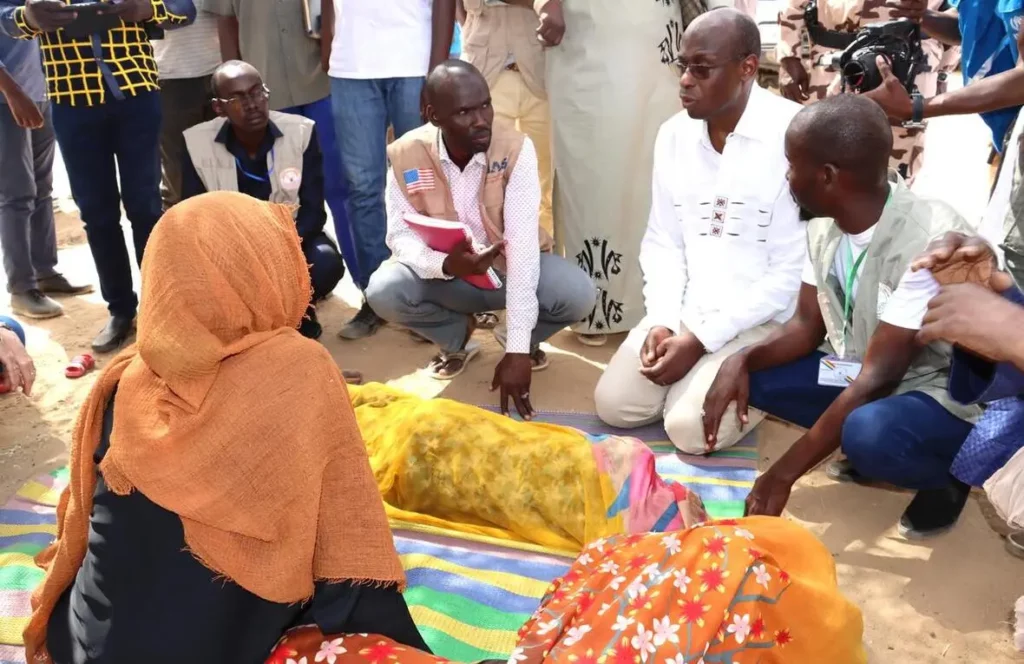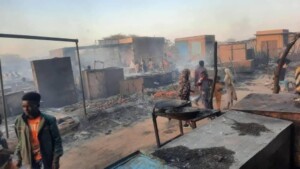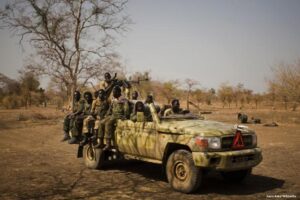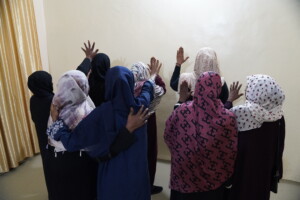Humanitarian crisis in Darfur increases as attacks rattle Zalingei

Refugees in Gaga camp in eastern Chad speak with visiting UNCHR representative Raouf Mazou, May 22 (UNHCR)
ZALINGEI / NYALA / BOROTA, CHAD –
Zalingei, capital of Central Darfur, witnessed various attacks in the past days, the Darfur Bar Association (DBA) reported. In the South Darfur capital Nyala, fighting left multiple dead. Several bodies were found in the market. Communication breakdowns limit access to detailed information.
The DBA said in a statement yesterday that Zalingei witnessed attacks during the past few days, and that no detailed information was available due to the weak communication services.
Sources from the area reported that “armed men” launched attacks on Zalingei on Tuesday, resulting in four deaths and the abduction of four others. The situation seems to have calmed for now, but the aftermath is dire.
Inside the city, families are facing a catastrophic situation, with severe shortages of food and medicine.
Homes, offices, and the University of Zalingei have been looted. The Zalingei Teaching Hospital is said to be out of service.
Yesterday, members of resistance committees in Zalingei reported that paramilitaries of the RSF surrounded the city, raising fears of imminent attacks.
Violence in Nyala
The DBA reported that in Nyala, South Darfur, multiple bodies were found in the market, presumably caught in the crossfire last week. Authorities are working to identify the deceased and inform their relatives.
Vandalism have ravaged vital infrastructure, including that of telecommunications provider Sudatel. This severed crucial connections between institutions and banks in Darfur and Chad.
Yesterday, Radio Dabanga reported heavy gunfire and shelling in El Fasher, capital of North Darfur, in battles between the army and the RSF.
Refugees
The UN Refugee agency (UNHCR) estimates that the war that erupted between the Sudan Armed Forces (SAF) and the Rapid Support Forces (RSF) has driven between 60,000 to 90,000 Darfuri refugees into neighbouring Chad, with overcrowded camps in the eastern Chad village of Borota, near the West Darfur border.
About 90 per cent of the refugees are women and children. Many have lost family members. The impending rainy season threatens to lead to a humanitarian catastrophe, as most of the new refugees are living rough.











 and then
and then